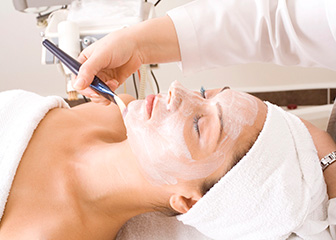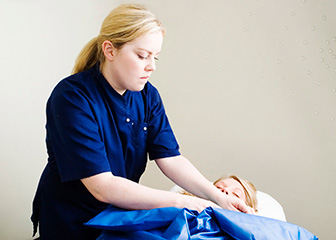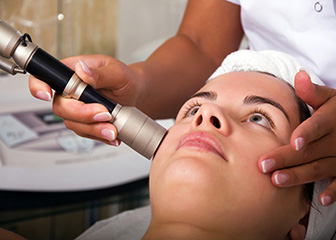Summary

| Quick Facts: Skincare Specialists | |
|---|---|
|
$28,920 per year
$13.90 per hour |
|
| Postsecondary non-degree award | |
| None | |
| None | |
| 47,600 | |
| 25% (Faster than average) | |
| 11,700 | |
What Skincare Specialists Do
Skincare specialists cleanse and beautify the face and body to enhance a person’s appearance.
Work Environment
Skincare specialists usually work in salons, health and beauty spas, or medical offices. Most work full time. Many work evenings and weekends, especially self-employed workers operating their own salon.
How to Become a Skincare Specialist
Skincare specialists must complete a state-approved cosmetology program. After completing the program, they must pass a state exam for licensure, which all states except Connecticut require. Newly hired specialists sometimes receive on-the-job training, especially when working with chemicals.
Pay
The median hourly wage of skincare specialists was $13.90 in May 2010.
Job Outlook
Employment of skincare specialists is expected to grow 25 percent from 2010 to 2020, faster than the average for all occupations. The growing number of beauty salons and spas should result in good job opportunities.
Similar Occupations
Compare the job duties, education, job growth, and pay of skincare specialists with similar occupations.
O*NET
O*NET provides comprehensive information on key characteristics of workers and occupations.
Contacts for More Information
Learn more about skincare specialists by contacting these additional resources.






